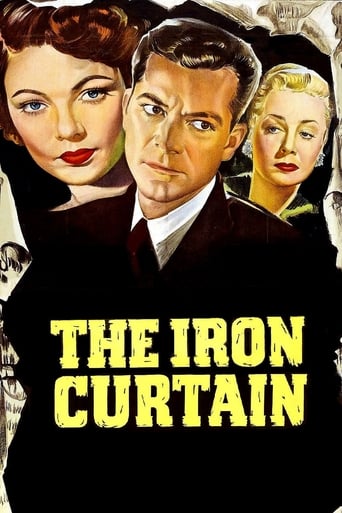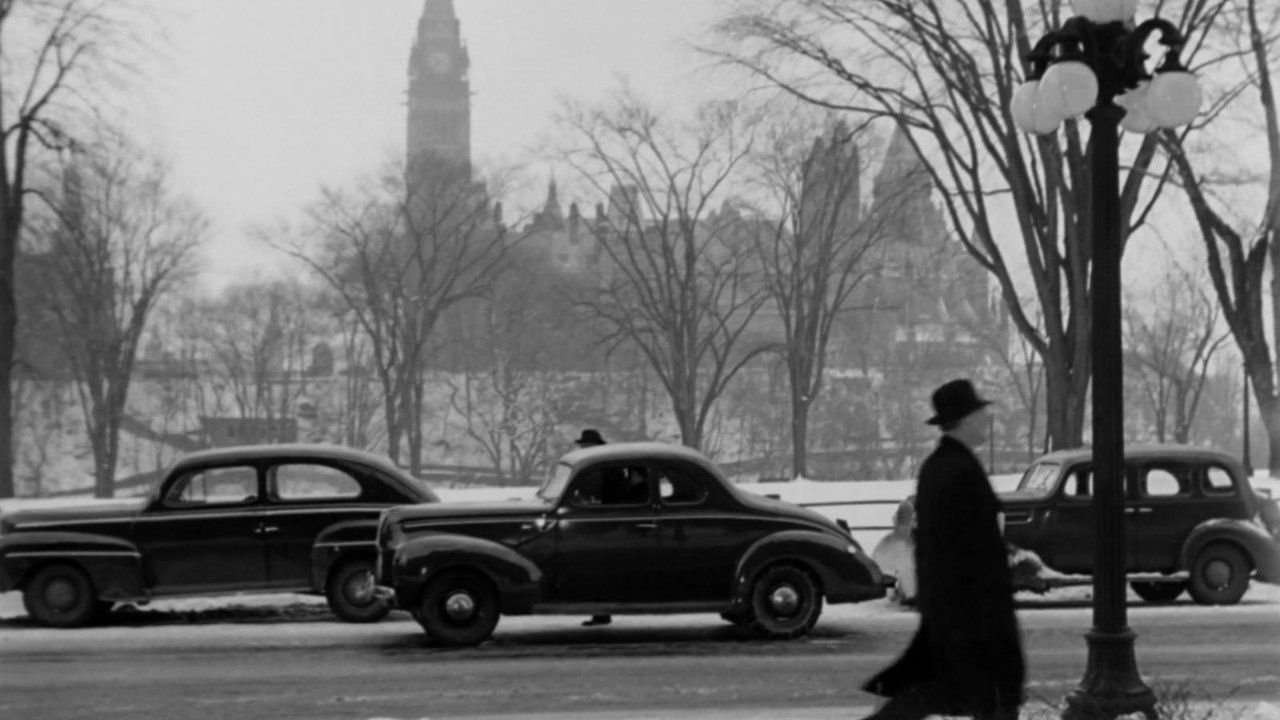SimonJack
For all of the spy and espionage thrillers that have been made into movies, people today may be surprised to learn how old the American secret service is – or rather, how young it is. The CIA is the youngest of all the intelligence agencies of NATO nations. It wasn't formed until late 1947. Yet more movies since the last half of the 20th century have been made about or with CIA involvement in the stories than about any other intelligence organization or other government group. Right behind the CIA, with nearly as many movie numbers is the CIA's elder cousin, MI6 of Great Britain. Still, secret intelligence of the espionage type must have been an anathema to North Americans even through two world wars. That point springs from the details of the major Soviet Union espionage scandal that shocked Canada, the U.S. and the rest of the world in 1946. Even growing up during and after World War II, I don't recall ever having heard it being discussed or written about soon thereafter. I do recall watching a TV game show in the mid-1950s in which I first heard the name Gouzenko. But I didn't know about this movie until recent years."The Iron Curtain" was made in 1948. It is the true story, based on the actual events, that led to the world's discovery of the covert espionage activities of the Soviet Union. It was this discovery that some sources label as the beginning of the Cold War according to the Encyclopedia Britannica. Yet, it may never have been known for years or decades to come had it not been for one person – Igor Gouzenko. This movie is his story, from the time he arrived in Canada from Moscow in early 1943 until he defected in Ottawa on Sept. 5, 1945. Gouzenko was a cipher clerk who was loyal to the U.S.S.R. until that time. His wife had arrived from Moscow to join him and their first child was soon born. When he was due to be sent back to Moscow, he decided to defect and take secret espionage files with him. The movie shows how harrowing was his move because of the reluctance of Canadian government offices to believe him, or even to show interest. He even went to a major newspaper and was turned away. How he came to be successful almost seems like a fairy tale. But this is the story on film. Dana Andrews plays Gouzenko superbly. Gene Tierney is his wife, Anna (Svetlana). The supporting cast are all very good in the roles of the top Soviet embassy officials and Canadian Communist party spies. These included Col. Ilya Ranov, head of the Soviet Secret Police (later KGB); Col. Aleksandr Trigorin, chief Soviet military attache; Maj. Semyon Kulin, his deputy; John Grubb (aka "Paul") who established the Canadian Communist Party in 1920 and headed it's espionage activities. While the Soviet embassy officials couldn't be prosecuted, some 39 other civilians and military in government jobs were brought to trial, and 20 convicted of sentences from five years to life in prison. Gouzenko and his family were hidden and protected by the Royal Canadian Mounted Police and later were settled in a home with new identities in a Toronto suburb. He later wrote two books and appeared on TV shows with his head hooded to preserve his identity. He died in 1982 and Svetlana died in 2001. In 2003 Ottawa erected a memorial and in 2004 the Canadian government erected a memorial plaque. Some of the names and details in this film have been changed, but it mostly is an accurate portrayal of Gouzenko and his defection. The film appears dark and somber throughout. It was made in black and white and reflects the conditions under which Gouzenko worked and lived at the time. The movie was shot in the actual locales, and the prologue on the film states that all the documents in the film were the authentic items form the real event. While this film could hardly be considered entertaining, it surely is interesting. It provides a good look at the serious espionage activities of the world's largest Communist power and its threat to democracy and peace. On his arrival in Ottawa in 1943, Gouzenko was grilled by the Soviet Secret Police chief, to test his phony credentials. His opening statement is an example of the indoctrination that the Soviets put their own people through. It's a fitting way to end my comments. Gouzenko, "I am now in a foreign country and must always be alert against enemies. I must be careful of all manner of acquaintanceship. I must not engage in cordial conversation with any foreigner whatsoever. Never borrow money from a foreigner. In my apartment, I must be respectful to neighbors but make no friends. I must never permit myself to be more drunk than either my guests or my host. A sober brain, a firm tongue, and alertness. These things must always be with me when I'm with foreigners."
Edgar Soberon Torchia
Not a very good film, to be honest... For your pleasure it is a propaganda film, if you enjoy that or double standard. Due to its origin, it is full of "patriotic" speeches disguised as dialogues, exaltation of the American notion of democracy, dark portraits of Soviets' Western allies, warnings of the "Red Menace" that sound insolent when you see how light-heartedly the H-bombing of Japan is assumed, and so on... William Wellman directs all the tension-filled action with his usual skill, and actors are rather restrained in their Soviet portraits, but in the end not even the self-righteousness of the project can hide its true political agenda.
ackstasis
Who doesn't love a good piece of anti-Communist propaganda? Admittedly, 'The Iron Curtain (1948)' is a rather average example of the art-form {with Sam Fuller's 'Pickup on South Street (1953)' being the best} but at least Wellman's film is given a boost by the winning combination of Dana Andrews and Gene Tierney
the latter of whom being the main reason that I watched this film. Another reason to watch 'The Iron Curtain' is its magnificent soundtrack, plundered from the repertoires of Russian composers Dmitri Shostakovich, Sergei Prokofiev, Aram Khachaturyan and Dominik Miskovský (each of whom ran into political turmoil back home for their perceived collaboration on a Hollywood picture). The music is unique to 1940s cinema, suggesting a grandeur that, back then, could only be found in the cinematic scores of Hungarian-born Miklós Rózsa. This sense of grandness is crippled somewhat by the film's documentary-like approach.'The Iron Curtain' was based on the true story of Igor Gouzenko, a Russian cipher clerk living in Canada with his wife and child. When Gouzenko defected in 1945, he exposed Stalin's efforts to steal the Allies' nuclear secrets, even while WWII was still raging. Like most Cold War films, this one starts off a little slow, utilising plenty of furtive glances and lengthy silences, but the suspense really kicks in when Gouzenko steals classified Soviet documents and tries to find somebody who'll take them. Dana Andrews, one of the most underrated leading man of the 1940s, brings a tired determination to the film's final gripping moments, as he pleads with a Canadian Mountie to protect him. Gene Tierney, looking as lovely as ever, is still denied the emotional depth of her role in 'Laura (1944)' {in which she and Andrews had previously starred}, but otherwise performs well.
edwagreen
Excellent film dealing with Soviet spies operating in Canada during World War 11 and afterward.The spying was done out of the Soviet embassy in Canada. There were plenty of non-Canadians involved in the spy ring as well.This film was a true story. Dana Andrews gives a subdued performance as a Soviet decoder who comes to appreciate democracy. He is soon joined in Canada by his wife who is played by Gene Tierney. She brings a simplicity to the role as the Soviet wife who also comes to respect a democratic way of life.There is an excellent performance by Eduard Franz, who plays an disenchanted alcoholic Soviet official, whose disdain for Soviet life will lead him back to the Soviet Union.The film is exciting since it shows how no one wanted to listen to Andrews unraveling of the spy ring.


 AD
AD


